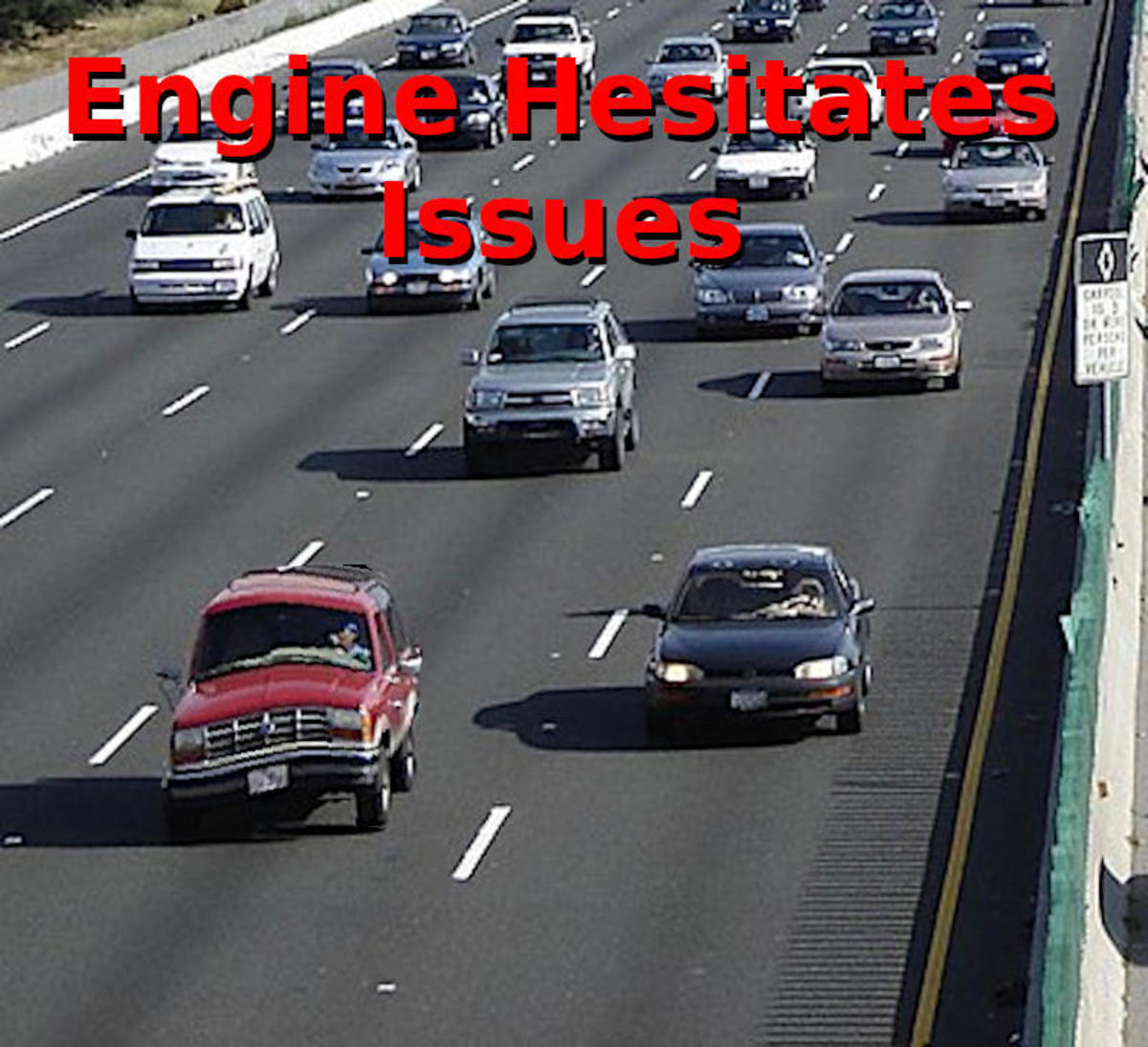Have you experienced an annoying hesitation in your engine when you press the gas pedal? This issue can be frustrating and even dangerous if it occurs while overtaking or merging into traffic. Engine hesitation during acceleration can result from various causes, but with the right troubleshooting and repairs, you can restore your vehicle’s smooth performance. In this detailed guide, we will delve into the common reasons behind engine hesitation and provide practical solutions to help you resolve this issue effectively.

Image: www.car-auto-repair.com
Understanding Engine Hesitation During Acceleration
Engine hesitation during acceleration refers to a delay or stumble in the engine’s response when you apply more throttle. This hesitation can manifest as a momentary pause or jerking motion, accompanied by a drop in power output. The underlying causes of this problem can range from faulty spark plugs to fuel system issues.
Common Causes of Engine Hesitation During Acceleration
Identifying the source of engine hesitation is crucial for effective repairs. Some of the most common causes include:
Faulty Spark Plugs:
Worn-out or fouled spark plugs can result in weak or intermittent sparks, leading to engine hesitation.

Image: axleaddict.com
Fuel Filter Clogging:
A clogged fuel filter restricts fuel flow, causing a lean fuel mixture and engine hesitation under acceleration.
Fuel Injector Issues:
Malfunctioning fuel injectors can deliver insufficient fuel or create a poor spray pattern, resulting in hesitation.
Airflow Problems:
Restricted airflow due to a dirty or clogged air filter, a faulty mass airflow sensor, or a vacuum leak can cause an improper air-fuel mixture and hesitation.
Ignition Coil Failure:
A faulty ignition coil can weaken or disrupt the spark, leading to engine hesitation.
Throttle Position Sensor Malfunction:
A malfunctioning throttle position sensor provides incorrect signals to the engine’s computer, resulting in hesitation during acceleration.
Transmission Problems:
Slipping gears or a faulty torque converter in automatic transmissions can cause hesitation when shifting gears.
Diagnosing Engine Hesitation During Acceleration
Diagnosing the cause of engine hesitation requires a systematic approach. Start by observing the symptoms closely, including the engine’s behavior under different driving conditions and the presence of any warning lights on the dashboard. Next, perform the following checks:
-
Inspect the spark plugs for wear or fouling.
-
Check the fuel filter for clogging.
-
Test the fuel injectors for proper operation.
-
Examine the air filter for dirt or obstructions.
-
Inspect vacuum lines for leaks and damage.
-
Test the ignition coil with a spark tester.
-
Check the throttle position sensor’s signal range with a multimeter.
-
If necessary, have a mechanic diagnose transmission issues.
Fixing Engine Hesitation During Acceleration
Once you have identified the cause of engine hesitation, it’s time for repairs or replacements:
-
Replace old or faulty spark plugs.
-
Install a new fuel filter.
-
Clean or replace malfunctioning fuel injectors.
-
Replace clogged air filters and repair vacuum leaks.
-
Install a new ignition coil if it has failed.
-
Calibrate or replace a faulty throttle position sensor.
-
Repair or replace transmission components as needed.
How To Fix Your Engine Hesitation During Acceleration
Conclusion
Persistent engine hesitation during acceleration can be both frustrating and potentially hazardous. By understanding the common causes and following the troubleshooting and repair steps outlined in this guide, you can resolve this issue effectively. Remember, regular maintenance and prompt repairs can prevent engine hesitation and ensure a smooth and responsive driving experience. If you have any doubts or require further assistance, don’t hesitate to consult a qualified mechanic for guidance.







